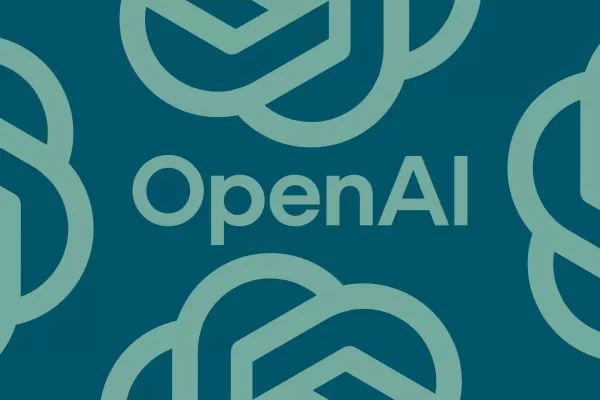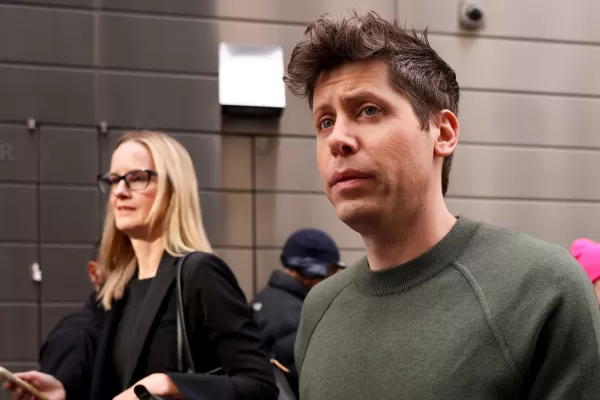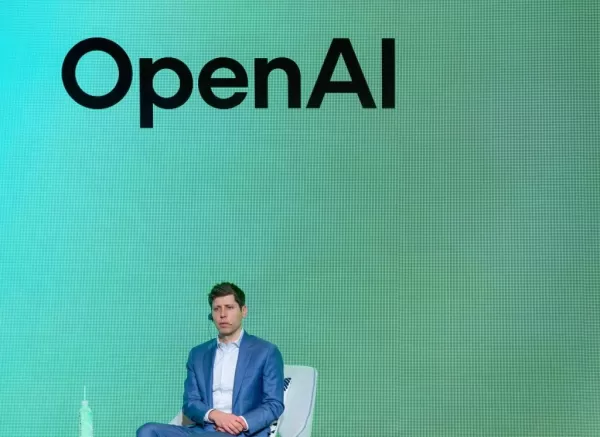Adobe and Figma Integrate OpenAI's Advanced Image Generation Model

OpenAI’s enhanced image generation in ChatGPT has driven a surge in users, fueled by its ability to produce Studio Ghibli-style visuals and unique designs, and is now expanding to other platforms. The company announced that the “natively multimodal model” powering this feature will be available through its API as “gpt-image-1,” according to a blog post, with major companies already adopting it.
“The model’s flexibility enables it to generate images in diverse styles, adhere to custom guidelines, utilize extensive world knowledge, and render text accurately – opening up a wide range of practical uses across various industries,” OpenAI states.
Leading companies like Adobe and Figma are integrating this model into their platforms. Details from the blog post include:
Adobe’s ecosystem of creative tools, including Firefly and Express, will incorporate OpenAI’s image generation capabilities, offering creators the flexibility to explore diverse aesthetic styles – a feature valued by business professionals, consumers, and artists for sparking innovative ideas.
Figma is utilizing the advanced model to introduce enhanced image generation and editing features across its platform. Starting today, users can leverage ‘gpt-image-1’ in Figma Design to create and modify images from simple prompts – adjusting styles, adding or removing elements, expanding backgrounds, and more. This integration enables designers to quickly explore and refine visual concepts within Figma.
OpenAI notes it is “actively collaborating with developers and businesses to explore additional applications for image generation in the API,” including partnerships with Canva, GoDaddy, and Instacart.
The “gpt-image-1” model is initially accessible via OpenAI’s Images API, with support for the Responses API expected soon.
Related article
 AI to Unlock New Discoveries in 2026, Says OpenAI CEO
In a recent essay titled "The Gentle Singularity," published on Tuesday, OpenAI CEO Sam Altman outlined his vision for AI's transformative impact on humanity over the next 15 years.Altman's essay blen
AI to Unlock New Discoveries in 2026, Says OpenAI CEO
In a recent essay titled "The Gentle Singularity," published on Tuesday, OpenAI CEO Sam Altman outlined his vision for AI's transformative impact on humanity over the next 15 years.Altman's essay blen
 Tech Giants Divided on EU AI Code as Compliance Deadline Nears
The EU's AI General-Purpose Code of Practice has revealed stark differences among leading tech firms. Microsoft has expressed its intent to adopt the European Union's voluntary AI compliance framework
Tech Giants Divided on EU AI Code as Compliance Deadline Nears
The EU's AI General-Purpose Code of Practice has revealed stark differences among leading tech firms. Microsoft has expressed its intent to adopt the European Union's voluntary AI compliance framework
 Former OpenAI Engineer Shares Insights on Company Culture and Rapid Growth
Three weeks ago, Calvin French-Owen, an engineer who contributed to a key OpenAI product, left the company.He recently shared a compelling blog post detailing his year at OpenAI, including the intense
Comments (0)
0/200
Former OpenAI Engineer Shares Insights on Company Culture and Rapid Growth
Three weeks ago, Calvin French-Owen, an engineer who contributed to a key OpenAI product, left the company.He recently shared a compelling blog post detailing his year at OpenAI, including the intense
Comments (0)
0/200

OpenAI’s enhanced image generation in ChatGPT has driven a surge in users, fueled by its ability to produce Studio Ghibli-style visuals and unique designs, and is now expanding to other platforms. The company announced that the “natively multimodal model” powering this feature will be available through its API as “gpt-image-1,” according to a blog post, with major companies already adopting it.
“The model’s flexibility enables it to generate images in diverse styles, adhere to custom guidelines, utilize extensive world knowledge, and render text accurately – opening up a wide range of practical uses across various industries,” OpenAI states.
Leading companies like Adobe and Figma are integrating this model into their platforms. Details from the blog post include:
Adobe’s ecosystem of creative tools, including Firefly and Express, will incorporate OpenAI’s image generation capabilities, offering creators the flexibility to explore diverse aesthetic styles – a feature valued by business professionals, consumers, and artists for sparking innovative ideas.
Figma is utilizing the advanced model to introduce enhanced image generation and editing features across its platform. Starting today, users can leverage ‘gpt-image-1’ in Figma Design to create and modify images from simple prompts – adjusting styles, adding or removing elements, expanding backgrounds, and more. This integration enables designers to quickly explore and refine visual concepts within Figma.
OpenAI notes it is “actively collaborating with developers and businesses to explore additional applications for image generation in the API,” including partnerships with Canva, GoDaddy, and Instacart.
The “gpt-image-1” model is initially accessible via OpenAI’s Images API, with support for the Responses API expected soon.
 AI to Unlock New Discoveries in 2026, Says OpenAI CEO
In a recent essay titled "The Gentle Singularity," published on Tuesday, OpenAI CEO Sam Altman outlined his vision for AI's transformative impact on humanity over the next 15 years.Altman's essay blen
AI to Unlock New Discoveries in 2026, Says OpenAI CEO
In a recent essay titled "The Gentle Singularity," published on Tuesday, OpenAI CEO Sam Altman outlined his vision for AI's transformative impact on humanity over the next 15 years.Altman's essay blen
 Former OpenAI Engineer Shares Insights on Company Culture and Rapid Growth
Three weeks ago, Calvin French-Owen, an engineer who contributed to a key OpenAI product, left the company.He recently shared a compelling blog post detailing his year at OpenAI, including the intense
Former OpenAI Engineer Shares Insights on Company Culture and Rapid Growth
Three weeks ago, Calvin French-Owen, an engineer who contributed to a key OpenAI product, left the company.He recently shared a compelling blog post detailing his year at OpenAI, including the intense





























